 Video
Video FAA NOTAM system could be more efficiently operated if privatized: Steven Bradbury
Former acting Transportation Secretary Steven Bradbury discusses the name change for the NOTAM system, FAA computer system outage that resulted in a mass ground stop for air travel.
The longest government shutdown in U.S. history delayed thousands of flights just weeks before the highly traveled holiday season, reigniting debate over whether to privatize the U.S. air traffic control system, which proponents argue would shield the industry from future shutdown concerns.
Calls to privatize air traffic control have lingered on the edges of aviation policy for decades, often flaring during outages or government shutdowns that lead to lengthy delays for travelers. Air traffic controllers in the U.S. are overwhelmingly employees of the government's Federal Aviation Administration (FAA), which is charged with overseeing civil aviation safety, including airport operations and certifications for personnel and aircraft.
Fox News Digital spoke with Diana Furchtgott-Roth, an economist and former assistant secretary for research and technology in the Department of Transportation under the first Trump administration, who has long advocated for the privatization of the FAA's air traffic control system, telling Fox News Digital there are "no downsides to privatizing."
"Privatization would enable more funds to flow into air traffic control," Furchtgott-Roth, who serves as director of the Center for Energy, Climate and Environment at the conservative Heritage Foundation think tank, told Fox News Digital. "Right now the (air traffic control system) depends on Congress for funds. The delays started because the air traffic controllers were not getting paid. If it were private, then payments would not be disrupted by shutdowns. Also, more money would flow in as more people used air travel, just as when more people want to eat out, more restaurants open."
AIR TRAFFIC CONTROLLERS ISSUE DESPERATE PLEA AS FAMILIES STRUGGLE WITHOUT PAYCHECKS
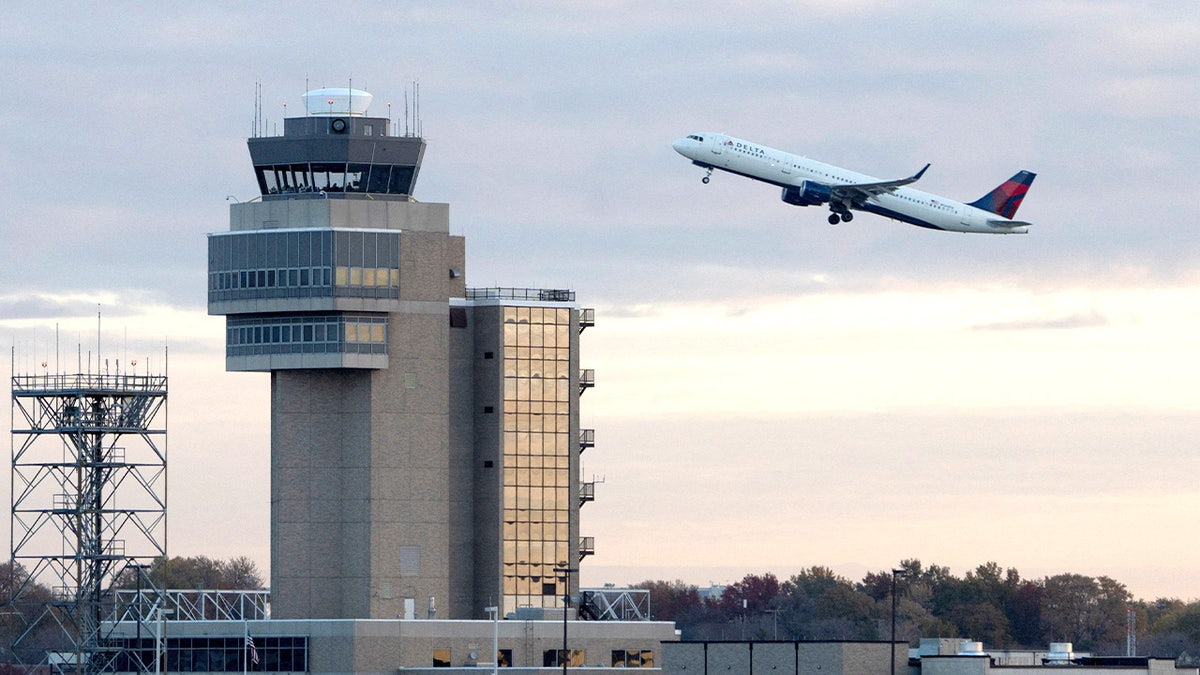
Aviation leaders have long called for the U.S.' air traffic control system to be overhauled and modernized, as staffing shortages and antiquated infrastructure have caused delays in recent years. (Tim Evans/Reuters)
Nations around the globe have privatized and corporatized versions of their own air traffic control systems — many of which are government-owned corporations or nonprofit entities that don't rely on taxpayer funds for operations. Proponents of privatization frequently point to Canada as an example to replicate.
Unions and U.S. lawmakers, however, have opposed previous moves to privatize while underscoring that the U.S. has the largest and most complex air traffic control brain in the world, and that disturbing an already well-established machine would risk airline safety and shift power to airlines and private interests.
Canada's government oversaw its air-traffic services until 1996, when Nav Canada was launched and implemented.
Nav Canada is a not-for-profit, self-financed corporation that relies on fees charged to users for funding. Proponents of privatization in the U.S. frequently point to Canada's success in freeing air travel from its reliance on public funds, and its ability to quickly modernize air traffic control's dated infrastructure as evidence to carry out a similar overhaul below the northern border.
FLIGHT DELAYS WORSEN AS UNPAID AIR TRAFFIC CONTROLLERS FEEL GOVERNMENT SHUTDOWN PAIN
Nav Canada is governed by a 15-member board that includes leaders from across the spectrum as it relates to aviation, including, "the Government of Canada, commercial air carriers, the general aviation sector and unionized air navigation service employees," according to its website.
Furchtgott-Roth said that if the U.S. were to privatize, it would operate similarly to Canada's system, including relying on funds from user fees to operate — not federal funds.
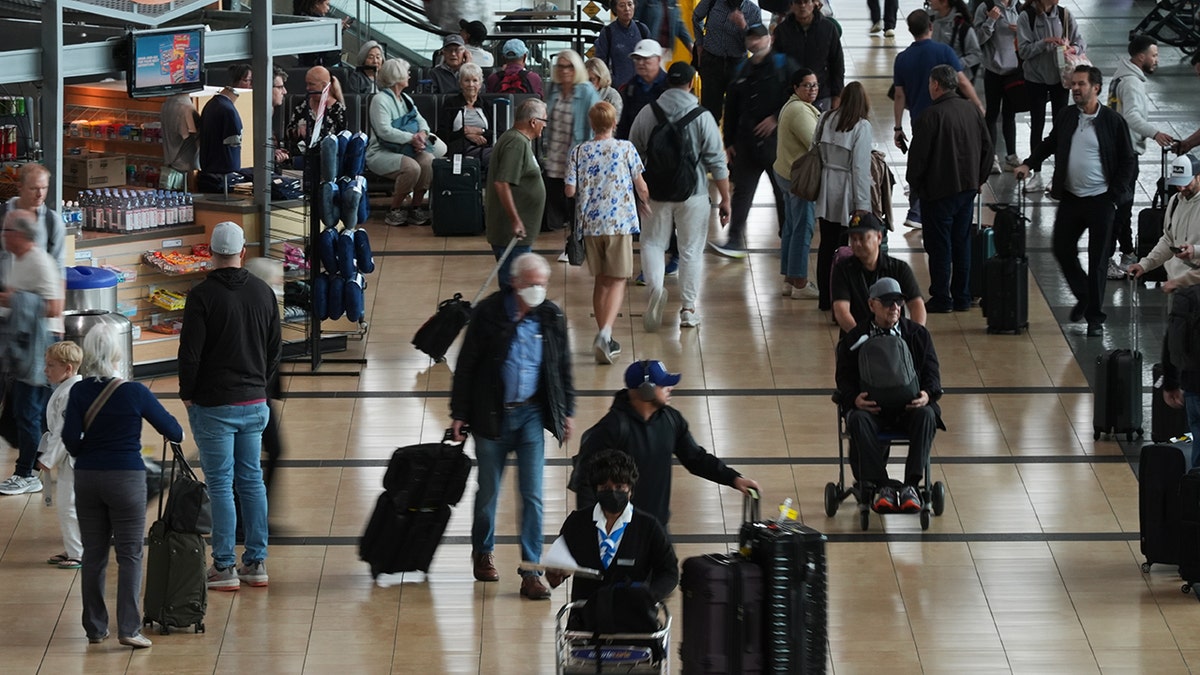
People make their way through a terminal at San Diego International Airport on Nov. 8, 2025. (AP Photo/Gregory Bull)
"Despite America being a bastion of capitalism, we are the only major Western country with a government ATC," she said.
She lamented that the current U.S. system's main inefficiency is due to it being government-run, arguing the U.S. is dragging behind other Western nations.
"There could be multiple ATC providers as long as they met government performance standards," Furchtgott-Roth added of how a new private system in the U.S. could function. "There is concern about safety, but no one worries about flying to London because of a private ATC."
Debate over privatizing the FAA and air traffic control cropped up earlier in 2025 after a devastating plane crash in January over the Potomac River in Washington, D.C. The collision killed 64 passengers and crew members on American Airlines flight 5342 and three crew on a Black Hawk Army helicopter.
The crash unfolded just days after Trump was sworn in as the 47th president, and reignited criticism of the FAA and aviation industry that already had been rocked by air traffic staffing shortages and flight delays under the Biden administration.
Trump signed a series of executive orders and actions since January targeting the aviation industry and FAA, including ordering the agency to remove any diversity, equity and inclusion efforts for its hiring practices while arguing the Biden administration prioritized diversity over merit.
FLIGHT REDUCTIONS LIKELY TO CONTINUE — OR WORSEN — IF SHUTDOWN PERSISTS, EXPERTS WARN
Under Trump's first term, he announced plans to privatize the air traffic control system by removing it from FAA's purview and designating control to a private corporation. The plan to privatize air traffic controllers failed in Congress, however.
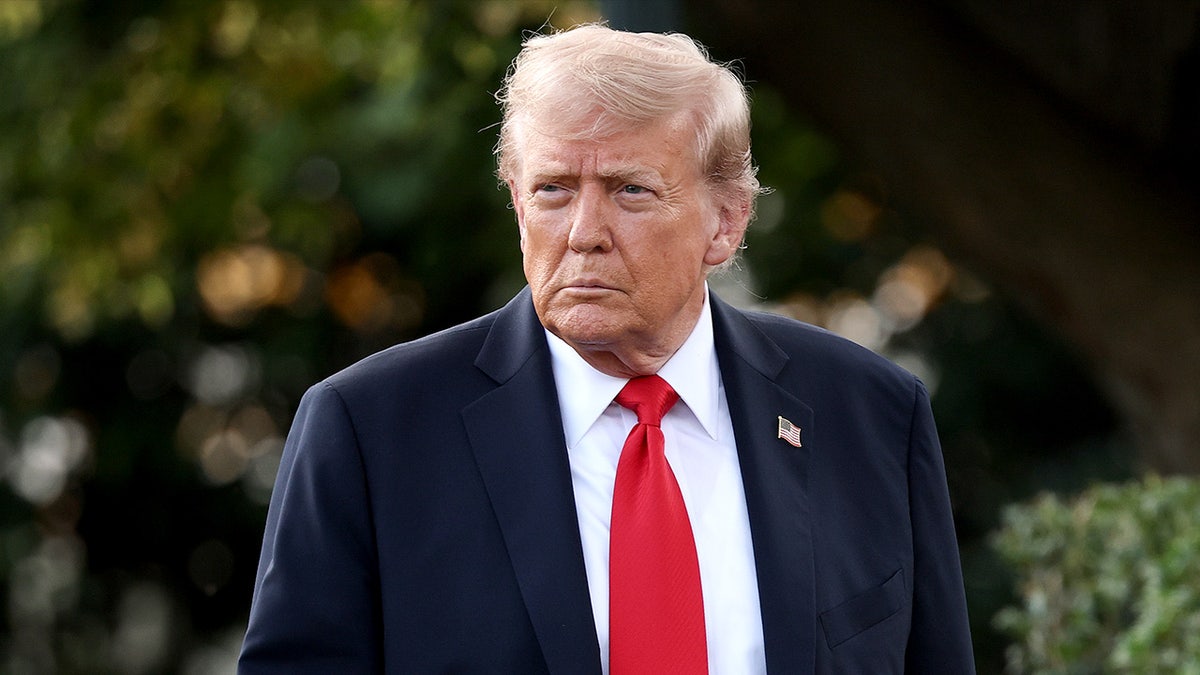
The Trump administration has touted massive modernization efforts in 2025, most notably a $12.5 billion investment under the "big, beautiful bill." (Getty Images)
Unions and lawmakers under the first Trump administration pushed back against the proposal to privatize, arguing that the U.S.' air traffic control is deeply complex and massive compared to other countries, and that privatizing would risk efforts to modernize the system and would expose air travel to uncertainties as it related to private funding.
Democratic lawmakers uniformly opposed the bill, while some Republicans also backed away from supporting the measure out of concern that a private entity could favor larger airports, affecting rural and small airports.
"Establishing a private ATC board outside the purview of Congress with the unilateral power to collect fees and distribute service would threaten safety, accessibility, affordability and pilot generation — which is already in a critical state," a group of five GOP senators wrote at the time opposing the measure. "Without proper and public oversight, this threat would be most readily felt in rural communities and the general aviation industry, which could experience reduction in ATC service."
AMERICANS COULD FACE AIRPORT CHAOS IF DEMS DON'T END SHUTDOWN, TRUMP OFFICIAL WARNS
Department of Transportation Secretary Sean Duffy also has pushed back against privatizing the agency, telling the media in August that such plans were not on the table.
"I could spend my time the next three and a half years fighting over privatization. I’m not going to do that," said Duffy. "What I’m going to do is put every resource into training up more air traffic controllers to get them certified in their airspace in which they’re going to work but also getting those experienced controllers to stay on the job, paying them a little more to not retire and continue to work for us."
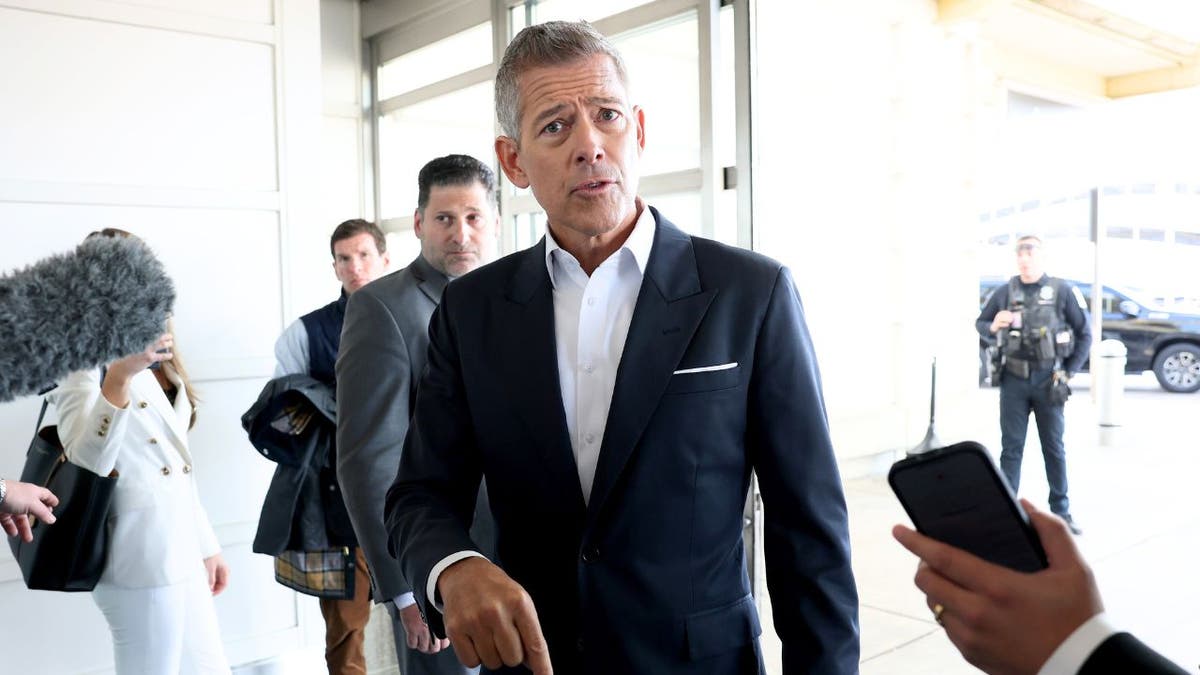
Department of Transportation Secretary Sean Duffy has pushed back against privatization. (Anna Moneymaker/Getty Images)
Beyond debate over privatization, industry leaders across the board have long called for the antiquated air traffic control system to be modernized, including in 2023 when a computer outage grounded and delayed thousands of flights across the nation.
The Trump administration has touted massive modernization efforts in 2025, most notably a $12.5 billion investment under the "big, beautiful bill," which passed in July. The funds are being used to modernize telecommunications equipment, and to replace radar systems and build a new air traffic route control center.
CLICK HERE TO DOWNLOAD THE FOX NEWS APP
Fox News Digital reached out to the White House and Transportation Department for any updates on privatization following the end of the shutdown but did not immediately receive responses.
https://www.foxnews.com/politics/shutdown-chaos-reignites-debate-over-privatizing-us-air-traffic-control








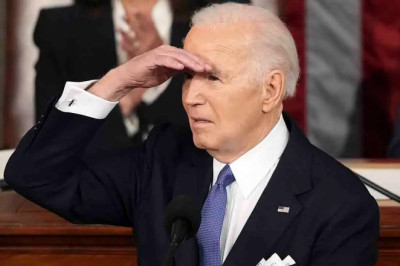

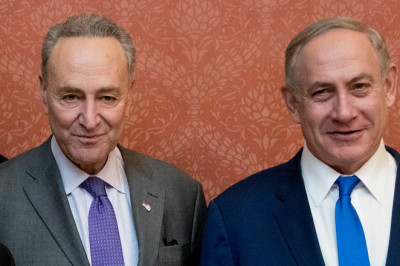
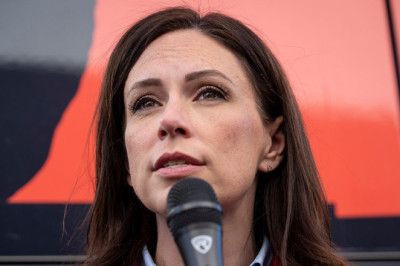
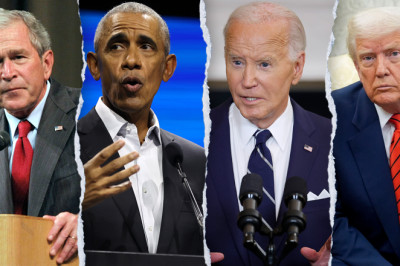
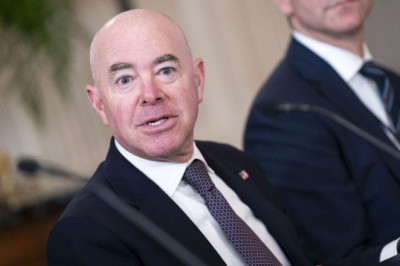
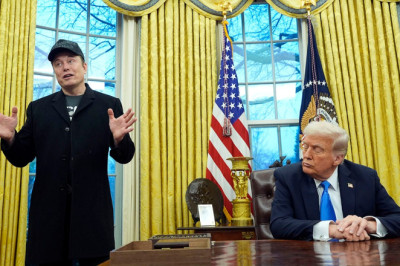
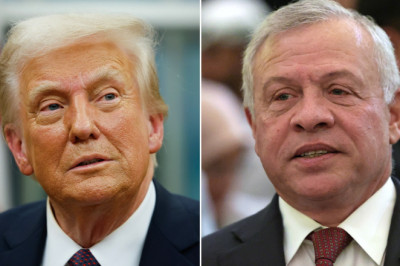
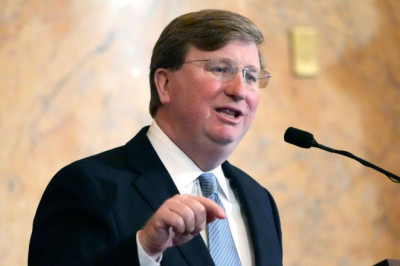

Comments
0 comment